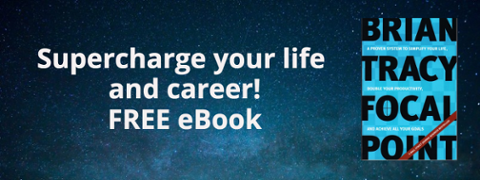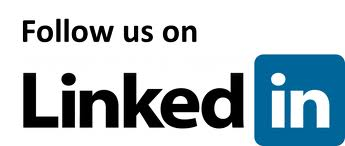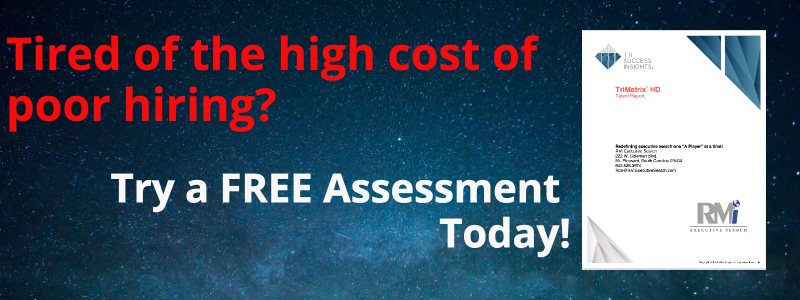I think most would agree on the importance of planning and strategy in the C-Suite. But, do you think it is equally important to your job hunting effort? Absolutely...yes! You are much more likely to land your next great job or career and in a shorter period of time by starting with a plan.
A few years ago, a financial services firm was airing commercials that had people walking around carrying their number…the amount they would need to save for a comfortable retirement. Remember? In one commercial, a fellow happens upon his neighbor who is on a ladder trimming his hedge. The neighbor asks him what he is carrying and he explains that it is his retirement number. On the hedge, the neighbor has a number too, $GAZILLION. When questioned about how he will achieve his number, the neighbor offers that his plan is to blindly throw money at it and “hope” something good happens. The point of the commercial is that most people don’t have a retirement plan. Instead, they have a guesstimate of what they might need for retirement and then randomly save when they think about it.

Unfortunately, most people beginning a job search take a similar approach…they randomly apply to almost every job they see posted on the internet (that might pay them an amount they want), submit an unflattering resume, never follow-up and tend to just “hope” things will turn out all right. But they don’t spend any time developing and implementing a proactive plan to get hired into a great company by a great manager for a great position/career.
Don’t get me wrong, “hope” is vitally important to your success, but it must be coupled with actionable planning. Zig Ziglar always said to go as far as you could see and that you would always be able to see a little further. In his book, Many Miles to Go, Brian Tracy explains how when crossing the Sahara Desert, you cross it “one oil barrel at a time.” Though simple, these are plans, strategic visions, or long-term goals — those markers in time that you are striving toward. In the Bible, it says “Where there is no VISION, the people perish.” (Proverbs 29:18) This could probably be rewritten to say, “Where there is no HOPE, the people perish.” In other words, if you have no HOPE, no VISION of the MEANINGFUL POSSIBILITY in your FUTURE, you will lose your reason to get out of bed each morning. You’ll have nothing to strive for, no “oil barrel” on the horizon.
Still not convinced you should spend time setting goals and developing a plan for your job hunt? Studies suggest that goal setting and strategic planning will increase your chance of success from 12% to as much as 1,100%. From my own personal experience (and that of many people I've coached), I’m convinced that written goals and planning will allow you to accomplish more of what you want to accomplish…FASTER…than not having written goals and plans. Zig Ziglar often said, “Positive thinking won’t get you everything, but it will sure get you more than negative thinking will.” I would offer a similar statement, “Written goals won’t ensure your goal accomplishment, but will significantly increase your chance of goal achievement!”
Developed through executive coaching, here's a simple, four-step approach to start your job search planning process (this is also a perfect planning process for getting a promotion):
-
Clearly define what your “ideal” job/career looks like (maybe it's one of these). Remember, the more specific you can be in defining your "ideal," the more likely you are to identify, move toward and successfully achieve that "ideal." [Who will you be working for (specific companies or people)? Where will you be working (maybe a city, a specific office/building, from your home)? What will your title be? What will you be doing/have responsibility for? What will the company culture be? How will you dress each day? How much will you travel? How much will you be compensated? What will the benefits be? Etc.]
-
Next, consider your personal strengths and weaknesses in relation to your future "ideal," as well as opportunities and threats to achieving your "ideal." [What are you absolutely great at? Which strengths will help you achieve, maintain and further your "ideal?" Who do you know that can help you achieve your "ideal?" What other resources do you have available to help you achieve your "ideal?"] [On the flip side, where are you lacking...what do you need to learn or practice...who do you need to know...what resources do you need to gather?] And with regards to opportunities and threats, consider things like industry growth (e.g. cloud computing versus maybe traditional software) or you might think about things like the future security of a particular role (e.g. inside sales being offshored versus outside sales which can't be).
-
Then, determine the “gap” between where you are today and the changes necessary to achieve your “ideal” future job. This consists of maximizing your current strengths and capitalizing on your current opportunities while minimizing/eliminating your weaknesses (e.g. finishing degree versus applying to similar role that doesn't require one) and protecting against your threats (usually family, time and money related). [Will you need to finish a degree, take a course, get a coach, move to another city, save some money for the transition, change industries, change roles, etc.] The "gaps" then become your goals! (e.g. go back to school, finish 12 hours in finance, get finance degree, get new Director of Finance role)
-
Finally, get into action bridging the “gap” (i.e. accomplishing your goals)!




